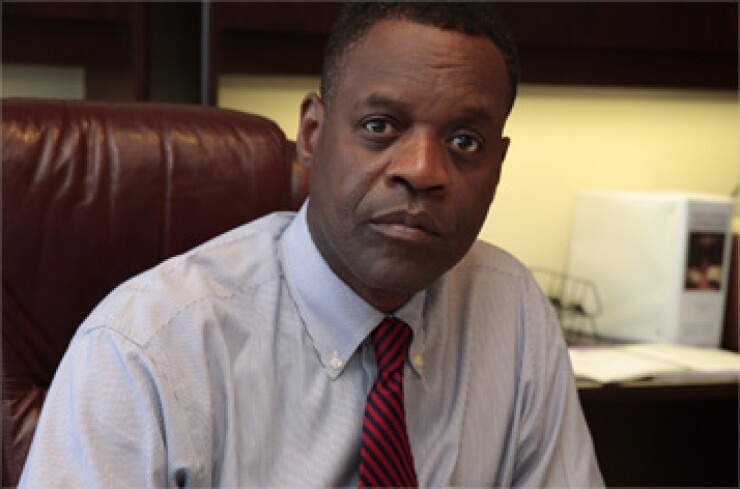
CHICAGO -- Detroit emergency manager Kevyn Orr said he asked the Securities and Exchange Commission to investigate the city's interest-rate swaps amid "serious questions" about the legality of the financings.
Orr made the remarks Friday in testimony at a key hearing on the city's proposed settlement with its swap counterparties. Despite misgivings about the original swaps and a 2009 provision that tapped casino revenues as collateral to the swaps, Orr is pushing for court approval to settle with the swap counterparties.
Bankruptcy Judge Steven Rhodes adjourned the hearing late Friday. Creditors who are challenging the deal will present closing arguments Monday morning.
The trial resumes as the city heads into key negotiations with bondholders Monday and Tuesday. It's set to meet with holders and insurers of the city's unlimited-tax and limited-tax general obligation bonds as well as water and sewer bonds in mediation sessions in New York.
Detroit's swaps settlement with the counterparties, UBS AG and Merrill Lynch Capital Services Inc. has sparked the most opposition yet from municipal bond insurers and some debt holders in the historic bankruptcy case.
Opponents to the settlement include bond insurers Syncora Guarantee Inc. and Ambac Assurance Corp. and the city's two pension funds.
Rhodes was set to rule on a settlement in mid-December, but suspended the hearings after an impasse with Detroit attorneys, who refused to disclose the legal arguments behind their decision to settle. Rhodes ordered the city back into negotiations with the banks to win a better deal.
A revised settlement, which is the subject of the current hearing, would have the city pay $165 million to UBS and Merrill Lynch to terminate the swaps, valued at roughly $248 million. The original deal called for a $230 million payment.
The city plans to secure a $285 million debtor-in-possession loan from Barclays PLC to pay off the swaps and use the remainder for various city services. The DIP financing is also part of the current trial, but did not come up much in testimony on Friday, according to local accounts.
Bond insurers, led by Syncora, which wraps some of the interest-rate swaps and the pension certificates they hedge, argue that the deal is too favorable to the banks in part because the original swap financings and the use of casino revenues as collateral violated state law.
Detroit emergency manager Kevyn Orr, in testimony Friday and in court documents, admitted that the city also had "serious questions" about the legal uncertainty surrounding the original financings. He said he even asked the Securities and Exchange Commission to investigate the deals.
"There were strong arguments," Orr said. "But there are strong countervailing factual arguments."
In the end, Orr said he decided the risks were too high, with the city's odds of winning a legal battle at "more or less 50-50," while tying up the casino revenue.
An Orr spokesman said that Orr asked the SEC to look into the swaps "a few months ago."
"The SEC informed him that the commission has a four-year window to 'look back' on securities deals and that time period had passed," Orr spokesman Bill Nowling said in an email, referring to the 2005-2006 pension certificate sale and the concurrent swaps. "The commission also said it had previously looked at the swaps deals and determined that it would not open a full investigation," Nowling said.
Terminating the swaps is crucial for the city's recovery, Orr said. "The city cannot plan unless it removes this potential risk from the table," he testified.
Ambac also argued that the value of the swaps -- and any termination payment -- continues to fall in the city's favor as interest rates rise, and so the $165 million payment does not represent a significant discount.
In closing arguments, Jones Day attorney Corinne Ball told Rhodes the city believes it has met its burden in proving that the settlement is in the best interest of the city and its creditors. The legality of the decision to pledge gaming revenue remains uncertain, Ball admitted. "Is it black and white on either side? No, we don't think so. We thought it was litigable," Ball said, according to the Detroit Free Press.
Earlier Friday, Ambac asked Rhodes to force the city to turn over its analysis of the legality of the swaps and the collateral, but Rhodes denied the motion.
The judge also denied Ambac's later request that he immediately reject the swaps settlement with a "directed finding."





